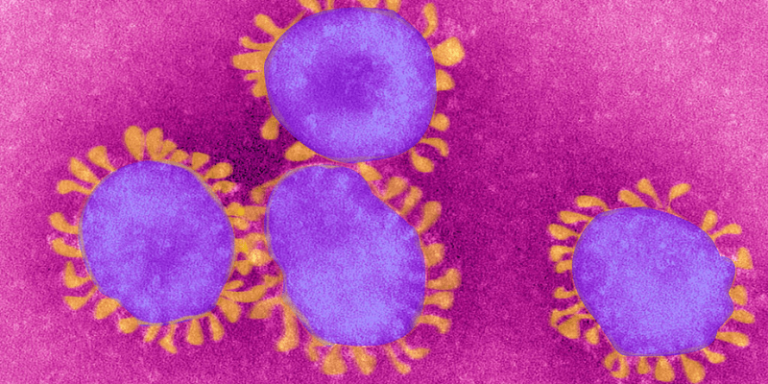Coronavirus and Immunity
How our bodies defend us from a virus.
By: Laura Valkovic | May 15, 2020 | 519 Words

(Photo By BSIP/UIG Via Getty Images)
The Coronavirus pandemic has a lot of people worried about the dangers of getting infected. It’s easy to get scared, thinking that our bodies have no real defenses against the virus or other microbes like bacteria. That’s not true. The human body has a powerful defense system to fight invaders like the virus. Our immune system works hard to keep us healthy – but how does it work, exactly?
Infection
It’s not that easy for a virus to infect us. Human bodies have many lines of defense to stop microbes before they can infect our cells. These include physical barriers like skin, nose hairs (which act as a filter), and mucus that catches microbes before they harm us. We also have chemical barriers in saliva and stomach acid to kill germs.
A virus doesn’t simply infect us by touching our bodies – it has to attach to the correct human cells. Different viruses “dock” with matching human cells. For example, the Ebola virus attaches to cells in the blood vessels and liver, and the HIV virus attaches to white blood cells. COVID-19 is compatible with cells in the respiratory system – so you can’t become “infected” unless it gets into your airways. When the virus docks with our cells, then it starts reproducing, and we are infected.
The Immune Response
As well as physical and chemical barriers, we also have macrophages – a type of immune cell that roams around our body looking for invaders to eat. When there are too many bacterial or viral cells, our macrophages sound the alarm for back up. This is our immune response, and thousands of immune cells charge in to help. Specialized cells develop antibodies to fight the infection. It takes some time for the body to design the perfect antibody to match the specific virus – this is when we feel symptoms, like a fever or headache.
Immunity and Antibodies
You may have heard that once a person has had COVID-19, they will be “immune” from the virus because of antibodies in their system – is this true? Yes and no. The antibodies won’t stay in a person’s system forever. Even when the antibodies are gone, your body is trained to deal with that virus, and it remembers what to do. If you ever catch the same virus again, your body can check its records and call in the cells that know how to make the right antibody – easy!
There’s a catch, though. Just like human cells learn how to kill a certain virus, a virus is always looking for ways to evade our immune cells. That’s how a virus mutates – it changes slightly to outsmart our immune system. This creates a different strain of the virus. When faced with a new strain, our old antibodies won’t work anymore, and our bodies have to start the whole process again.
Luckily, the Coronavirus doesn’t pose much of a problem to the human immune system, so most people who catch it recover. The main people who need to be careful are those with weakened immune or respiratory systems.
















